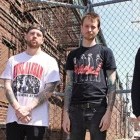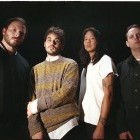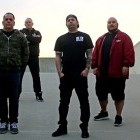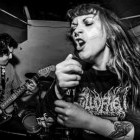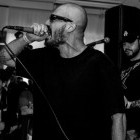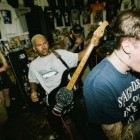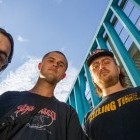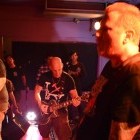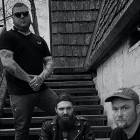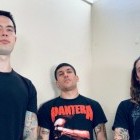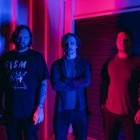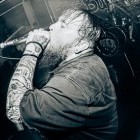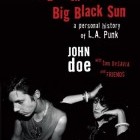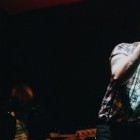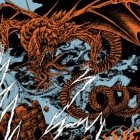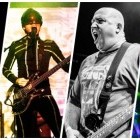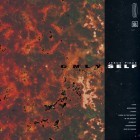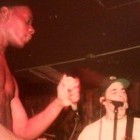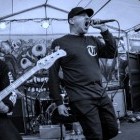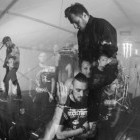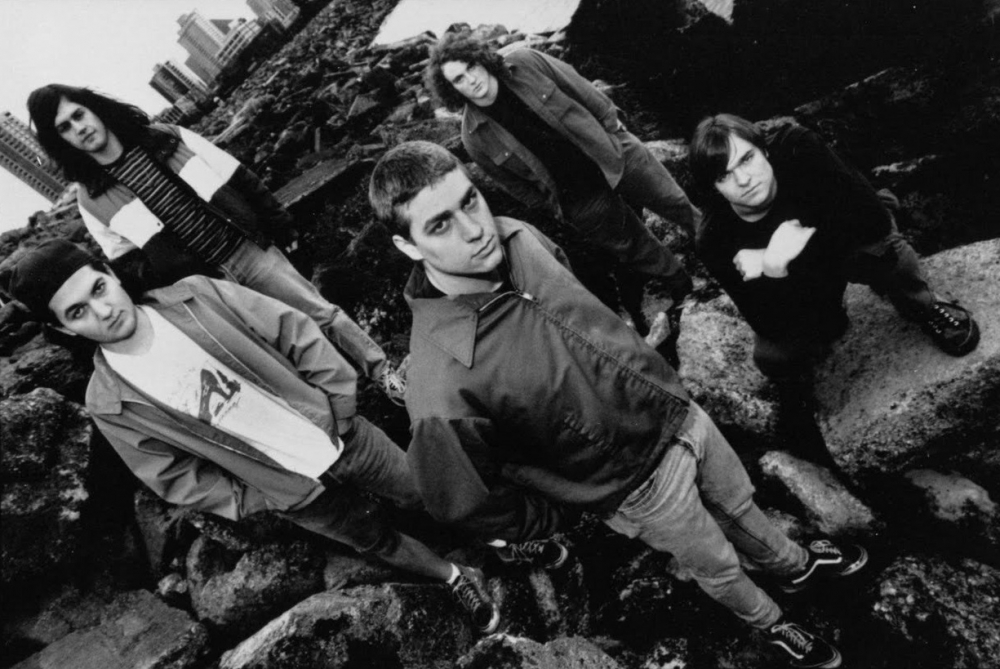
My love for Seaweed is strong. The Washington melodic punk outfit first appeared in my life in the early '90s, when they were still signed to Sub Pop, a label that was on the tip of everyone's tongue back then. For my money, Seaweed's Four and Spanaway are two of the best albums to come out during that era, even though the band is rarely, if ever, mentioned in those nostalgia pieces that come up on other sites and music magazines.
The group broke up at the end of the '90s, after the touring cycle for their sole alum for Merge Records, Actions and Indications. Since then, Seaweed have done a string of reunion shows, and released a 7" on No Idea in 2011.
Recently, I posted a piece on Ghost Work, a new project which found musicians who have played in such bands as Snapcase, Minus the Bear, and Milemarker joining forces. Well, their singer happens to be Aaron Stauffer, the voice of Seaweed. So, I asked Ghost Work's Dustin Perry for Aaron's contact info to see if he would be down to do an interview about his life in music. For some strange reason, he agreed.
Seaweed has always been synonymous with the state of Washington, but did you always live there growing up?
I grew up in a small town called Steilacoom. It's basically part of Tacoma, but it's older and it's incorporated, so it's technically its own place.
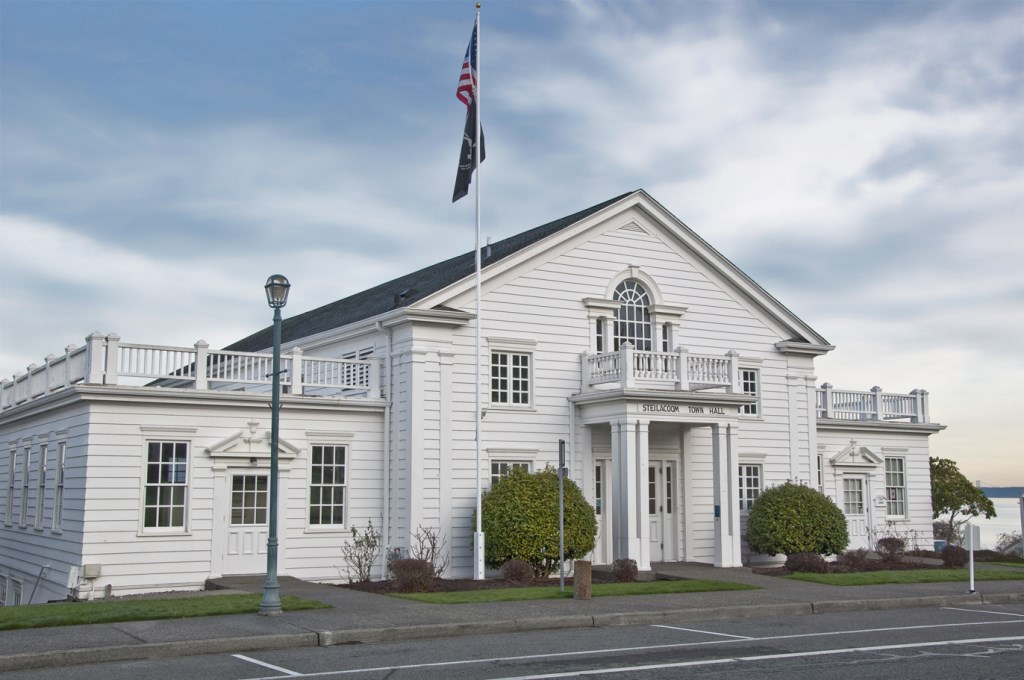
Since you're a child of the '70s, were your parents hippies?
My parents were definitely not hippies [laughs]. In fact, neither of them have smoked pot even once in their lives. I'm trying to get my dad to smoke pot now because all of his friends, like him, are older, and they smoke pot to help with pain. I'm like, "Why don't you just try it?" I quit smoking pot around 12 years ago, but I believe it's helpful for some people. My dad is in his seventies now, so it's not like he's going to be killing off brain cells or anything [laughs]. But he's not into it.
Your father was a teacher, right?
Yep, and the funny thing is...you know that band Botch?
Yes, of course! Botch was great.
Well, the guys from Botch and Minus the Bear went to my high school and my dad gave me the Botch demo back then. He told me that they wanted him to give me their cassette [laughs]. My little sister is the same age as those dudes, so they probably found out about the Seaweed connection through her somehow. Both me and Clint [Werner] from Seaweed had gone to that high school a few years before [Lakes High School]. Seaweed was the second most famous musical artists to come out of that high school after [blues guitarist/singer] Robert Cray. But you know, I think we might be third now after Minus the Bear [laughs].
So, did you end up listening to the Botch cassette?
Yeah, it gets better, or worse, depending how you look at it. I told him that I didn't want to listen to it. So, yeah, I missed out on the first Botch demo because the drummer they had at the time had beef with my little sister [laughs]. It's embarrasing in a way because they clearly were a cool band.
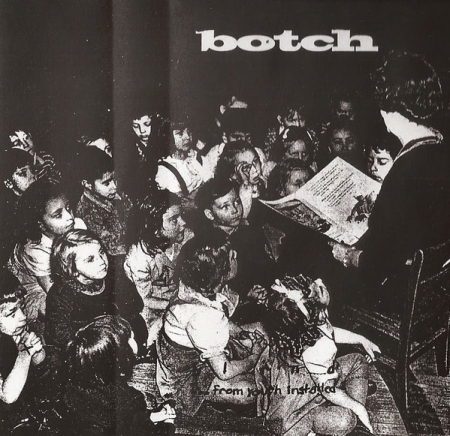
What kind of music did you first get into as a kid?
Actually, my parents had a pretty cool record collection when I was a kid. They had Bob Dylan, Elvis Presley, Johnny Cash, that kind of stuff. I'd say that my father had 3/4 of the entire Dylan catalog up that point, you know, his good years. So, a lot of my all-time favorite music comes from my parents' record collection from when I was a kid at home. [Bob Dylan's] Blood on the Tracks was like the soundtrack to my youth.
SEE ALSO: 2017 interview with Jeff Caudill (Gameface, Your Favorite Trainwreck).
How did find your way to punk music?
I would say that I got into it through new wave. There was a new wave radio station in Washington, KYYX, so I found out about a lot of stuff through that. My older sister was into new wave, so I would listen to all her records. Oh, there was also a radio station at Evergreen State College called KAOS. That's actually how I met a lot of the Olympia people. I would listen to people like [Beat Happening singer/guitarist] Calvin [Johnson] on there since he had a show, and I would call them up using fake names. Tobi [Vail] from Bikini Kill also had a show that I would call. "Scab" was one of the fake names I used [laughs]. When I eventually met them at a punk show, I introduced myself and they already kind of knew who I was from calling their radio shows. I learned about a lot of good music from those radio shows.
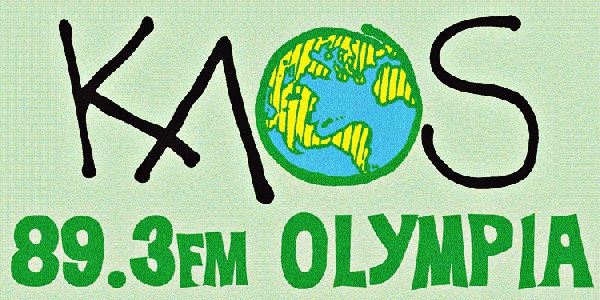
At what point did you start playing in bands?
There was a band that I made up that actually ended up becoming real and was kind of on K [Records]. That was Spook & the Zombies, which was really just me. Spook & the Zombies ended up on a cassette compilation K put out called Birdcrash. The Go Team was on it, which was Calvin and Tobi, not the other band that came out years later. Another band on it was Oklahoma Scramble, which was just your classic girl singer, K band kind of sound. It was pretty good, actually. When I was 16, I ended up going on a West Coast tour with Calvin, Tobi, and this guy that was also on K, Rich Jensen, and Mecca Normal. I remember Calvin came to meet my parents and they vetted him [laughs]. They decided he was OK enough to go out on tour with [laughs]. That was probably the late fall of 1987, when I was a sophomore in high school.
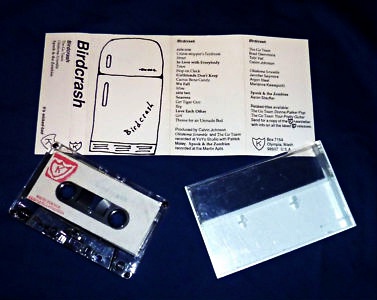
I never heard Spook & the Zombies. What kind of style was it?
I just played acoustic guitar and sang. It was kind of like Jonathan Richman, although I didn't know who he was back then. It was very earnest kind of stuff. Bratmoble did a cover of a Spook & the Zombies song ["Girlfriends Don't Keep"] on one of their albums, but it was kind of annoying because they didn't just credit it to me, but they used the band name instead. It's OK, though. I know [Bratmobile guitarist/singer] Allison [Wolfe] and was actually in an early incarnation of Bratmobile. I played guitar. It wasn't for long. That was when I was in high school and she was in college. Yeah, we dated for a period of time.
What was the next thing you did after the Spook & the Zombies stuff?
The next thing was Cactus Love with Steve Ross, who later went on to be in The Briefs. We were a pretty terrible garage band [laughs]. I remember [Sub Pop band] Girl Trouble saying like, "You should have stuck to your solo stuff." [Laughs] They were probably right! We were trying to be like Jesus Lizard, but it's not easy to just sound like that when you're a teenager. You end up coming out with something terrible [laughs]. When this band was happening, I was still doing Spook & the Zombies stuff.
Was the next band you played in Seaweed, and was there a very specific sound you guys wanted to try and go after?
Clint and I started Seaweed. Originally, we were both playing guitar. We liked Soundgarden, Dag Nasty, Minor Threat, Black Flag, you know, all that stuff. But there was a whole year of us just playing with a ton of different people in the band. It might have been even longer than that. We were in Clint's basement. It was tough to find other teenagers with the same kind of commitment. We wanted to practice three times a week at that point. We wanted to get serious with this band [laughs].
What was the signficance of the band name Seaweed?
Nothing, man, zero. I grew up within a mile of the Puget Sound, and I spent a lot of time there when I was younger. Anyway, our drummer at the time, Kyle, he went, "How about Seaweed?" There were like 100,000 names thrown out.
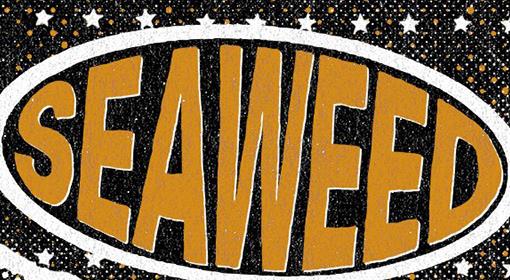
The first Seaweed records were the Inside and Just a Smirk 7"s.
Yeah, those were released on Leopard Gecko which was John Atkins, the bass player of Seaweed, his label. That was him and another guy, Steve. The cover for Just a Smirk was done by Nikki McClure, you know, the famous artist? I like that 7" a lot. Then we did another 7" that year [Deertrap], and that was on K Records. I remember Calvin from K telling me to not shop the band to labels. "Don't fret, someone will put it out." He was like, "Write your own ticket." And you know, he was right.
This was in 1990, so was Seaweed touring at that point?
Well, Clint and I had just graduated from high school that year, and we were the last two members in the band to do that. We went out that summer with Superchunk because Leopard Gecko had put out a record by Wwax, which was Mac from Superchunk's previous band. They were super-good! Anyway, on that tour, towards the end, Twin/Tone (The Replacements, Babes In Toyland) was at the Minneapolis show and told us they wanted to sign us. Of course, we loved that label back then. But before we had gone out on that tour, Sub Pop had asked us to put a 7" out with them. So, we went home and went back to Sub Pop and told them about the Twin/Tone deal, but that we would rather be on Sub Pop because they're local, and all that stuff. They ended up offering us a deal. I mean, there's more to it, because [Sub Pop founder] Bruce [Pavitt] had already come out to see Seaweed about a year before that and I had known him before that because he used to write about Spook & the Zombies, and gave it some good press.
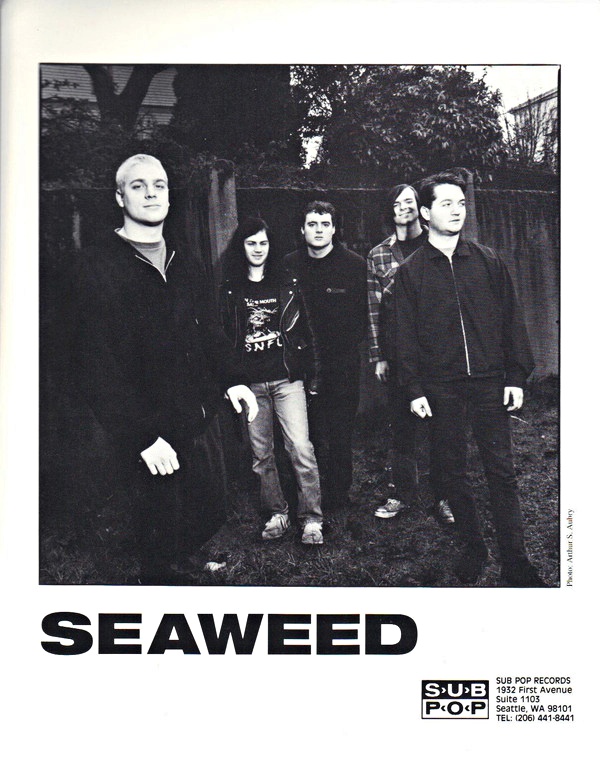
Despised was the first release to come out on Sub Pop.
Yeah, at first Sub Pop wanted to do an EP and then two records, but then someone else at the label came up with the idea to tack on some songs from the older 7's so that they could release it as a proper record. Tupelo [Recording Company] actually had put out all of the 7"s in Europe, and their plan, of course, was to release everything in America as well, but they only had licensed the stuff for Europe. So when we did that Despised record with the extra songs, they were pissed at us.
That brings us to Weak, the first official studio Seaweed album, which I read somewhere you aren't that fond of.
It's funny because a lot of people I meet tell me that Weak is their favorite record by us [laughs]. Yeah, I don't the way it sounds, and I think all of the songs are pretty samey. I just think that on the next album, Four, is where we really started to do something more interesting.
I remember working at a record store called Disc-O-Rama in NYC at the time Weak had come out, and I was drawn to the cover photo since it looked like something you would see from a hardcore band.
It was done on purpose. Yeah, we were into hardcore. I liked Revelation Records quite a bit. We were like that bridge between the hardcore scene and Sub Pop. It's funny because Sunny Day [Real Estate] then came and there basically wouldn't have been a Sunny Day on Sub Pop if Seaweed hadn't been on Sup Pop. There were more like our contemporaries, even though we didn't really know them. They were the hardcore kids that came from the all ages scene that we played in. Seaweed didn't play bars during that entire era of the band, all the way through to the Spanaway album.
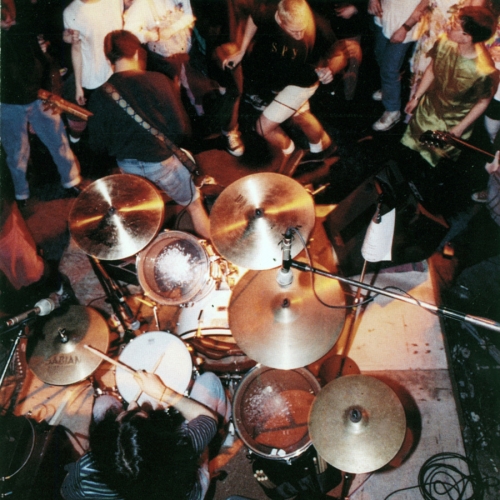
It's a great Charles Peterson photo on that album cover that I think captures the spirit of that time so well.
That photo was taken at the Capitol Theatre when we played a show with the Treepeople, who were Doug Martsch's [Built to Spill] band, and they were awesome. There's so many hipsters in that audience that went on to play in bands like Unwound and Heavens to Betsy. If I had that album in front of me now, I could pick out half the crowd [laughs].
SEE ALSO: 10 Newer Hardcore Bands Featuring Veteran Musicians
Let's move on to Four, which is probably tied with Spanaway as my favorite Seaweed release. There were songs on that album that retained the faster, more punk side of Seaweed's sound, but you could see the band expanding out a bit, stylistically speaking.
That was the first record we did ourselves. Ken Stringfellow from The Posies was in the studio with me when I was tracking vocals to make sure I was singing in key, but the rest is us. We did it in Clint's basement. That was our third release on Sub Pop, so we got a decent advance from them. So, instead of going to some big studio with that money, Clint bought a tape machine for us to use.
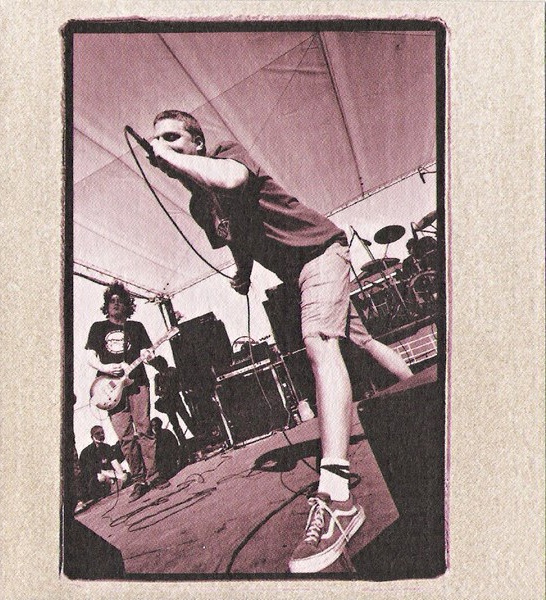
I remember the video for "Kid Candy" from that album getting some airplay on MTV's 120 Minutes.
The guy who filmed that was from Chicago and he also did the video for "Squint," which is not nearly as cool as "Kid Candy." I think Clint and Atkins came up with the concept for the video. I don't remember. It was kind of like Wild in the Streets meets Heavy Metal Parking Lot. You know, like the movie Over the Edge. Actually, that was probably the main inspiration for the "Kid Candy" video.
In 1994, Seaweed appeared on the Clerks soundtrack with your version of Fleetwood Mac's "Go Your Own Way." Was that a decent pay day?
I don't think we made much off of that. But [Clerks director] Kevin Smith did cold call me at my house [laughs].
What kind of bands was Seaweed touring with at that point?
We went out with Quicksand, maybe more than one tour with them. We opened up for Bad Religion and Green Day, with Bad Religion headlining, right when Dookie came out. We also did headlining tours.
That was the era when major labels were all spending a ton of money trying to find the next big "alternative band." How did the band end up signing with Hollywood Records? Were there a bunch of labels trying to sign you guys?
Oh yeah, all of them [laughs]. I remember Epitaph was one of the other labels that we spoke with. They were better suited for us, but we were tired and dirty, and we just wanted money so we maybe buy a house, which none of us did anyway [laughs]. Some of us were pretty stoned at the time, and we weren't really paying attention to the business [laughs]. We had management, and they were making a lot of the decisions for us.
I know the deal with Hollywood Records ended poorly, but Spanaway is a fucking great record.
Thanks, yeah, I feel like signing with Hollywood afforded us a lot of time in the studio, and it was the dream record we all wanted to make, kind of. We wanted to make the record on our own, which they agreed to at first, but then changed their minds. That was a huge wound for Seaweed. That said, I think we made a really good record. I just think it could have had some editing. I think there are too many songs on it.
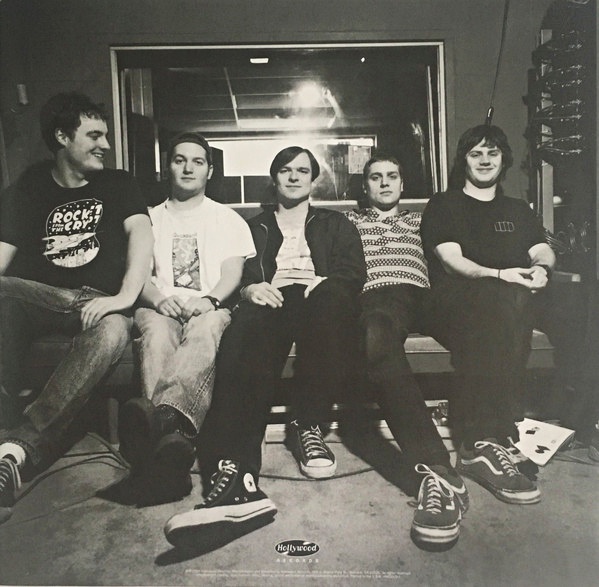
"Start With" was a fantastic single from that album. Was that a label decision to go with that as the focus track?
Yeah, that was the label. Seaweed was a demo band because we always had a studio. The demo version of "Start With" was completely different from the version that ended up on the album. It had different lyrics and everything. Anyway, the label heard the demo of that song and thought it was really commercial-sounding. We ended up recording it two more times, until they liked it [laughs].
Into Another was another band from a similar background to Seaweed's that also ended up signing to Hollywood Records at that time.
The A&R guy that signed us was the president of the label at the time. He had been the guy who had signed the Screaming Trees to Epic Records. Dave Wolter, the guy who signed Into Another, was from New York, and we kind of knew him because my girlfriend at the time, now my wife, lived in NYC, and I spent time there with her. At the time, Dave worked at Mercury Records, and he was trying to sign Seaweed there. Somehow, our move to Hollywood Records coincided with Dave's move to Hollywood Records, so when he came over, he took over our project. They assigned him to us.
SEE ALSO: Read a Chapter from the book STRAIGHT EDGE: A Clear-Headed Hardcore Punk History
What ended up happening with Hollywood Records? Did you make another album with them that got shelved?
We wrote and demoed another album's worth of material, which ended up becoming Actions and Indications, but Hollywood didn't like it. They thought it was terrible [laughs]. So, I ended up moving to Northern California, where I still am today, and I did the Gardener record.
Right. Tell me a bit about Gardener. Van Conner from the Screaming Trees was in the band for the New Dawning Time record.
I had already been doing Gardener 4-track demos for years by that point. It wasn't the kind of stuff that Seaweed wanted to do anyway. I also always loved to play guitar and write guitar songs. Not that I'm a very good player. I wanted to do a K Records/Royal Trux kind of thing. I knew the Screaming Trees guys from way back. I actually booked them to play a club show for my 16th birthday, but I didn't even end up going [laughs]. What happened was, I had played a show the week before with Spook & the Zombies and my parents had told me to not go to the show, but I went anyway [laughs]. So, I got in trouble and missed the Screaming Trees show I had booked. That's a true story!
The last Seaweed album, Actions and Indications, was released by Merge Records, the label owned by Mac and Laura from Superchunk, which you mentioned already you guys knew from touring together.
Exactly, we went to a Superchunk show and they went, "So, you have enough songs for a record but you don't have a label to put it out?" Then they asked us if we would be cool with releasing it on Merge, which were like, "Cool!" The deal was literally done at the Crocodile Cafe after one of their shows. They actually had asked us before the Spanaway album to go with them, but this time we did it.
Seaweed and Quicksand toured together, and I know you hung out with many of the NYHC folks from your time in NYC, but how did Alan Cage come to be your drummer?
Yeah, exactly, I had known him from touring and NYC, and he was a big Seaweed fan. When we heard that Quicksand had broken up, we figured he was available. Things weren't go well with Bob [Bulgrien], and it seemed like he was on the verge of not being in the band anymore. I think I even said to Clint, "Hey, Quicksand broke up. We should call Alan." Clint was like, "Fuck you, man! That's lame." But it wasn't working out for him. Things are good now, and we're friendly. I'm close with Atkins, and they're tight, so I see Bob like once a year now.
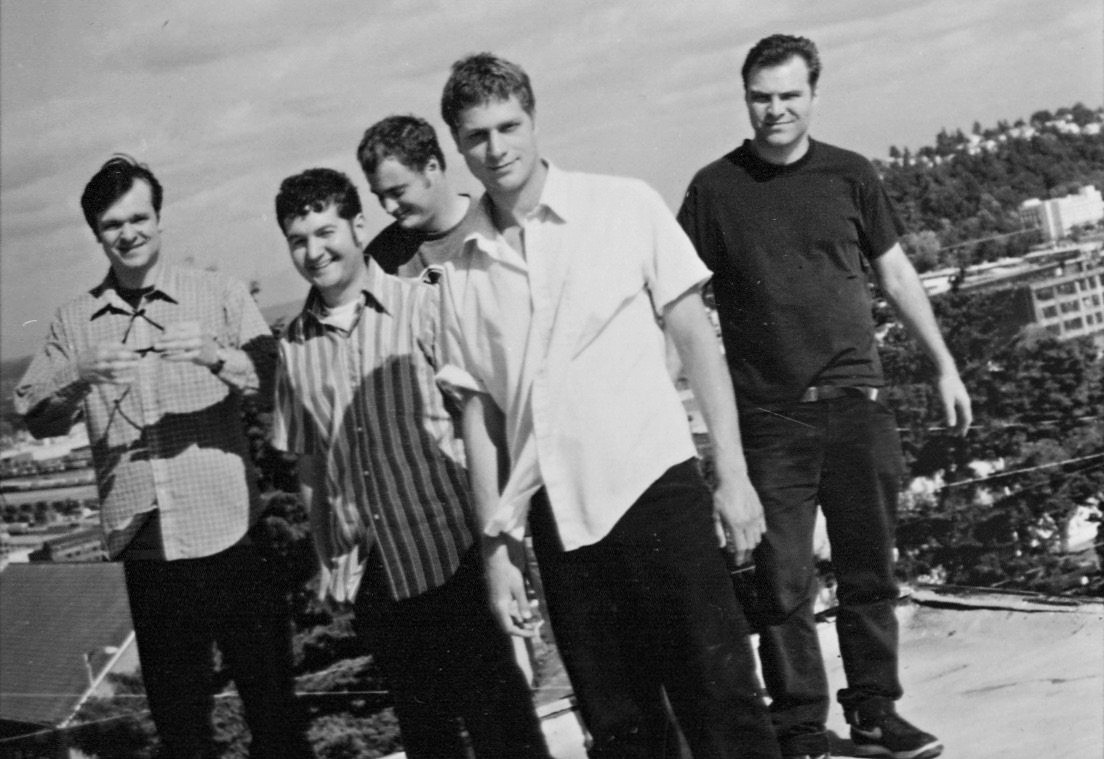
I have one more Alan Cage question, because I know a lot of people who read No Echo are big into Quicksand. I've always wondered if Alan moved to Washington for the band, or if he would just fly in for tours, etc.
No, man, he moved to Tacoma [laughs]. Yeah, he lived in Tacoma for a while with Clint. After that, he moved to Seattle for a while. But, yeah, Alan wrote that whole Merge album with us. I don't think it was like he was planning on living in Tacoma forever, but he was committed to the band.
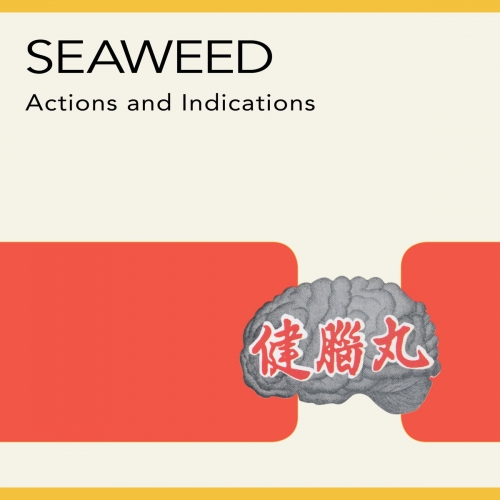
Seaweed broke up after the little bit of touring you did for Actions and Indications, right?
Clint really wanted to break up. He wanted closure. I didn't feel like we needed to break up. I was already living in Northern California and it was fun to play shows every so often. I thought it was great [laughs]. We would play some pretty decent shows. But Clint didn't want to do it anymore. I think we decided that a Brazil tour we were going to do would be our last tour. We ended up doing the Merge Records 10-year anniversary show, but that had been booked already. It didn't help that the Seattle show we did before the Brazil tour was the smallest show we ever played there [laughs].
How did you take the break up?
I was pretty bummed, honestly. I didn't think I would be, but I was bummed. I grieved it. Clint and I still played music together, but, yeah, I went home and was bummed.
Let's talk a bit about your other musical projects throughtout the years. The Blue Dot was one of the ones I remember.
Yeah, I took a break from playing when my daughter was born, but The Blue Dot was formed after that with one of the guys who had been in Gardener with me. We put out our record on our own, and we played a lot of shows. That went on from around 2004 to 2007, and then that broke up because I was in nursing school and was too busy. But while I was in nursing school, I did end up doing a one-man band called Stauffer where I played drums, keys, sang, and played guitar. I even did some shows with that. I wrote enough material for an album, but I never recorded it. That ended up morphing into another band called Stauff A Hara [w/ Mickey Kitahara who was the guitar player/sax in The Blue Dot] that also wrote enough for a record, but we never recorded it [laughs]. Stauff A Hara played one show in Mendocino, and then I got busy again and stopped playing music again.
Life responsibilities got in the way again?
Yeah, exactly. After that, there was a long period where I didn't play in a band. I'd say from 2010 to 2015 I didn't do a band. That said, Seaweed did play 13 reunion shows during that period. We did shows from 2007 to 2014. That's 13 shows in six years. Each show was a long negotiation of whether or not we should play or not [laughs]. Clint didn't want to play. To this day, he doesn't think we should have done any reunions. "The good bands don't do reunions," is what he said [laughs]. I was pleased to see Jawbreaker do the reunion show because it took Clint's argument away from him [laughs]. The last band standing is Fugazi.
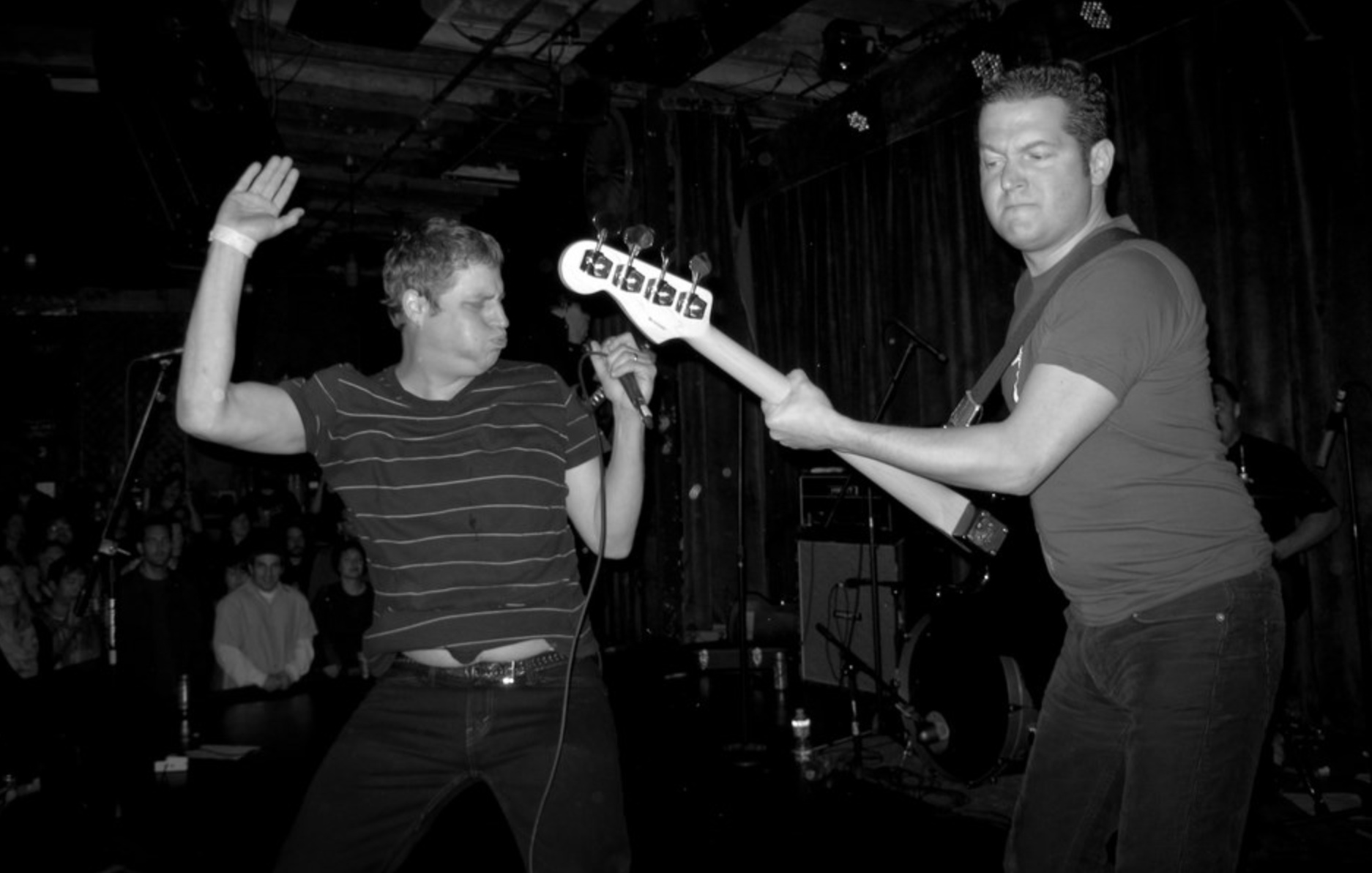
Now that you've had quite a bit of time away from them, how were the Seaweed reunion shows from your perspective?
Some of the shows were really fun. Not all of them [laughs]. But I would say more than half of them were a lot of fun. I enjoyed the time I spent with the other guys in the band.
Seaweed did end up releasing a 2-song 7" on No Idea, which I love, by the way.
Thank you, yeah. For that, the band recorded the music without me, and then I came down and recorded my vocals with Clint. It was like we had been doing since we were 15. Before Seaweed even existed, because Clint's first recordings, period, were recording me [laughs]. But we just weren't feeling it this time. I was like, "I'm having a real hard time doing this." And he was like, "Yeah, I'm with you." So we decided to not record anymore. The songs were great, but I think there was something harder about doing it because it was Seaweed. So, yeah, that was pretty much it. It was melancholy.
Tell me about Major Treasure, a musical project you're currently doing.
Yeah, so like I was saying, I didn't play in any bands, besides Seaweed, for a while. So, I fish a lot, and I started writing these sea chanty kind of punk songs and recording them [laughs]. I recorded them with Clint, and a friend of our's, Brian, in Portland, and then I sent them to Atkins from Seaweed and he told me that he loved the stuff, and that he had his own songs that were about islands. He figured we could take our songs and make a new band [laughs]. We did one rehearsal in Tacoma and said, "Fuck, we got this!" [Laughs] So, we practiced two more times and then played a show. It was so much fun. A label out of Tacoma called Futile Lords is either putting one or two 7"s out.
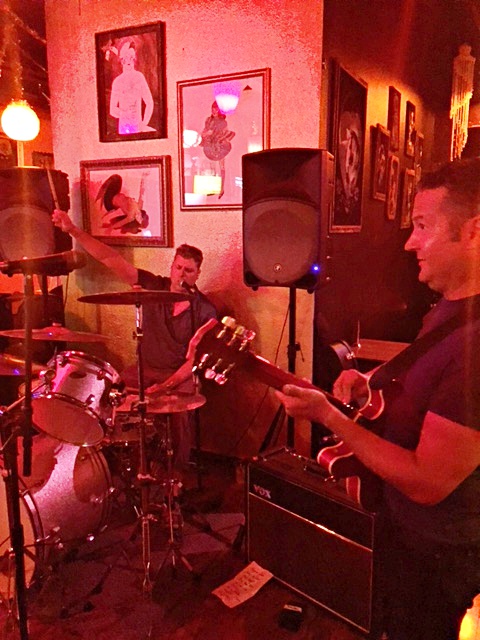
What else you have cooking on the musical front?
My daughter is a teen now, and a few years ago, I went to a party she was invited to and I met another father there who ended up being Victor Damiani, the bassist of Cake during the Fashion Nugget era. We ended up talking and he told me had hadn't played in a band for years. Anyway, we knew a lot of the same people from the Sacramento area. We ended up jamming and that became a band called Waveform NCC. We recorded an album, but the trumpet hasn't been done yet. Once that gets done, we'll release it. It sounds kind of like Gang of Four if there were lead by a trumpet. Maybe like Gang of Four meets English Beat, or something.
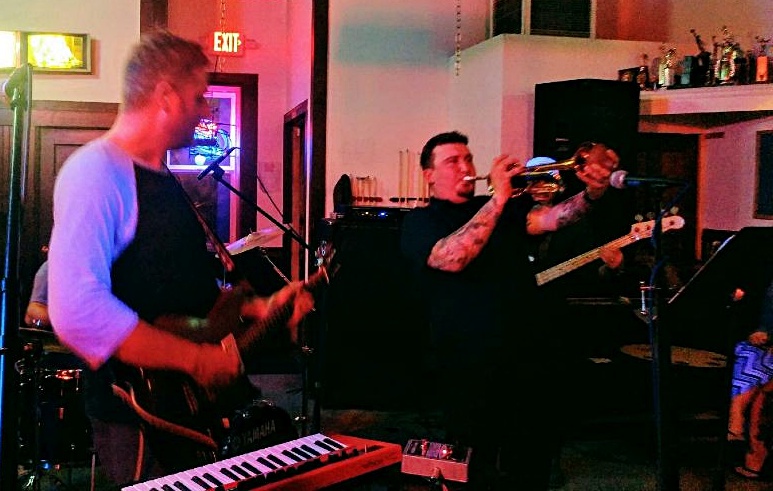
Before I let you go, we must talk about your latest project, Ghost Work. I know you didn't start that one, so how did you end up becoming the singer?
I'm 46-years-old and I'm in three bands [laughs]. Ghost Work, yes. That just happened last month. I think it was on Oct. 13. I don't know any of the other guys in that band [laughs]. I've only spoken to Sean [Husick], the dude that was in Milemarker. I got an email from Erin [Tate], the guy who was in Minus the Bear, and he was like, "I got your email from so and so, and I hope I'm not intruding, but here's some music, see if you like it, and if you want to sing on it." I remember reading that to my wife and saying, "This is going to be terrible." [Laughs] I saw Snapcase mentioned in the email, and I thought it was going to be like a hardcore band. I don't mean that it was going to be terrible because it was hardcore, it just wasn't going to be right for me as a singer.
Anyway, I heard the music and I was like, "Wow! This is really good." The guitar playing is super-interesting, and it reminded me of My Bloody Valentine or Cocteau Twins, you know? "I can totally sing on this!" It's been so much fun because in Seaweed, I only wrote about 10% of the songs, max, maybe for like 5% to be realistic. Most of the time I was just singing over someone else's riffs, and that's pretty much the only band I've played in where that was the case. So, it's been fun to be doing that again with Ghost Work. I have 4-5 more things to sing on, and I've been doing it in my house. Yeah, I'm having a lot of fun with this band.
*Aaron also wanted me to mention these other musical projects he was involved in way back:
My New Boyfriend (1990-1991): w/ Tobi Vail (Bikini Kill), Jenny Toomey (Tsunami, Simple Machines), and Christina Calle (Witchy Poo)
Skookumvert (1991-1992): w/ Ken Stringfellow (The Posies, Lagwagon) and Steve Fisk (Pell Mell, producer)
Not from Space (1995-1997): w/ Pete Chramiec (Verbal Assault, Rain Like the Sound of Trains), Dan Hoerner (Sunny Day Real Estate), Ben Corrigan (Thatcher on Acid), and Jessie Fox (Seaweed)
What do you do for a living?
I'm a nurse in the ER in a small town. Typically, our ER sends out most heavy trauma cases to other hospitals by helicopter, except for the days when the weather doesn't allow the helicopters to fly. For example, it's really rainy and cloudy outside, and I don't see any helipcopters flying through that, so I'm happy to be off work [laughs]. But I like it. I like people. It seems like a worthy enough career. You don't feel like your work is in vain most of the time.
SEE ALSO: Best Morrissey and Smiths Rockabilly Songs
Since your daughter is a teenager now, how does she feel about dad's past as a touring rock 'n' roller? Does she think it's cool?
My daughter does not think I'm cool [laughs]. She doesn't think it's cool when I go out and play shows, no [laughs]. With Waveforms NCC, one of her friend's dad is the bassist, and I was going to ask one of her teachers to play sax, and she's like, "Do not talk to him!" [Laughs] It's funny, even just this morning, Victor from Cake, he texted me that we should get that guy to play sax, but I think if we got him in our band, my daughter would have a heart attack. "Kid Candy" is one Seaweed song she does like. Oh, and there's one song from The Blue Dot she likes called "Luxury Damage," which was never released. It's just not normal for your kid to think you're cool, you know?
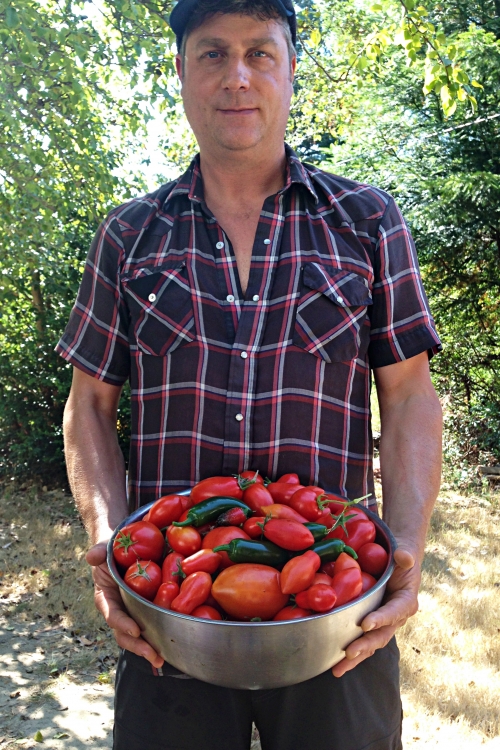
I think we've covered a lot here, so I'll let you go. But before I do that, I want to ask you, if you had to play one song to someone who hasn't heard Seaweed before that you think does a great job of representing the band, what would it be?
It's a weird thing, but I think "Through the Window" is my go-to favorite Seaweed song. That's also Atkins' favorite song. I have a Seaweed Greatest Hits CD that I made for myself and it has the songs "Baggage," "Squint," "Kid Candy," "Losing Skin," "Crush Us All," "Free Drug Zone," "Magic Mountainman," "Not Saying Anything," "Start With," "Through the Window," "Antilyrical," "Steadfast Shrine," and that's pretty much it. I've burned CD that for people [laughs].
***
Seaweed's Actions and Indications album is available directly from Merge Records. Sub Pop have some of the band's releases available as well.
Tagged: ghost work, seaweed

